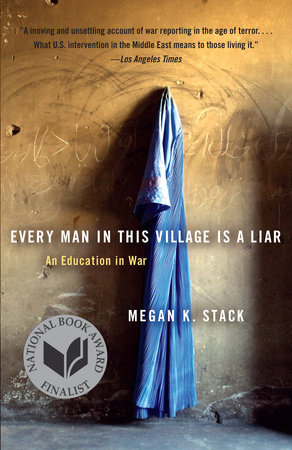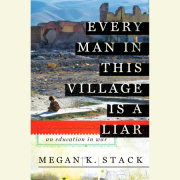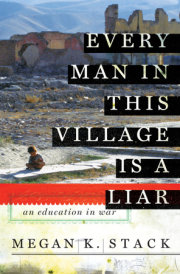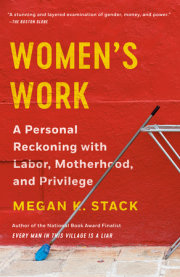ONE
EVERY MAN IN THIS VILLAGE IS A LIARCold dawn broke on the horizon outside. The bedroom door shushed open, bringing the morning air and a warlord on predator’s toes.
I lay in a nest of polyester blankets and listened to his footsteps cross the carpet. Every muscle pulled tight.
You reveal yourself in breath, in the nerves of your face. Count the breaths, in and out. He sat on the edge of the bed.
Smooth breath, relax your eyes, don’t let the lids shake. Then his calloused old hand was stroking my hair, cupping my scalp, fingers dripping like algae onto my ears and cheeks.
The warlord lived in Jalalabad, in a swath of Afghanistan where the soil is rich with poppies and land mines, in a house awash in guns. People whispered that he was a heroin trafficker. His tribal loyalists clotted the orange groves and rose gardens outside, AK-47s in dust-caked fingers. They said he was ruthless in war, that his skin was scarred by an arrow. There was a vague whisper about a legendary ambush, the warlord killing enemies with his bare hands. And now those ropey hands were petting my hair, silent and brazen.
I clung to one thing: Brian, the photographer, was in the bathroom. Water slapped the floor. How long would his shower last, and how could I escape the warlord’s lechery without offending him? The truth was, we needed him. He was an enemy of the Taliban, funded by the U.S. government, making a play for power in the vague, new order that had begun when American soldiers toppled the Taliban government. I was a stranger here, and he was my best source. He said he knew where Osama bin Laden was hiding. And now he was petting me like a puppy; nobody could sleep through it. The bed creaked. Stale breath sank in my face. Papery lips pressed my forehead. I opened my eyes and tried to look groggy.
“What are you doing?”
“Sshhh.”
I struggled upright, cleared a phlegmy throat, and tried to sound dignified: “You are putting me into a very awkward position.” A black-and-white-movie line, spilling out in a moment of panic.
He smiled and reached for my face.
“Please don’t do that,” I snapped.
Then, suddenly, silence. The water stopped, the pipes fell quiet. The warlord glanced around, stood, and slipped back out of the room.
Brian stepped out; his hair gleamed with water.
I turned my eyes to him and hissed: “We’ve got to get out of here.”
I had met Mohammed Zaman weeks earlier, in Peshawar—a cramped kaleidoscope of a city perched on the last edge of organization and authority in Pakistan. To the west stretched the lawless tribal territories, the Khyber Pass, the Afghan frontier. Driven away by the Taliban, Zaman had been living an exile’s life in Dijon, France, before September 11. Under chilly French skies he’d pined after his family’s lands, the service of armed tribesmen, and, presumably, the rich, fresh fields of Afghan poppy. When U.S. jets started dropping bombs on Afghanistan, Zaman raced back to Peshawar and holed up in a rented house, waiting for the Americans to dispose of the Taliban and clear the path home—and eager to make some money while he was at it.
I sat in the shadows of a taxi late one night, my face and head draped in scarves, making my way through the jangling streets of Peshawar for an audience with Zaman. I liked it, all of it, enormously—the poetry of the place, the intrigue of war, imagining myself veiled in the back of a clopping carriage, bringing secrets to a bootlegger. The warlord’s return had drawn throngs of men for endless meetings; I picked my way around the crowds on the lawn and sat waiting in a long drawing room. A door opened and out marched an American diplomat I’d seen at the embassy. His eyes skimmed mine and he hurried on, stone-faced. He didn’t like being spotted there. I sat and watched him leave.
Zaman came out, tall and deliberate, face sagging from his skull. We sat with tea between us, and I asked him to take me to Afghanistan when he went.
He was solemn. “I take your life on my honor,” he said from the heights of his mountainous nose. “They will have to kill me before they can harm you.”
A few days later, we set off for war. The sun sank as we drove toward the Khyber Pass, storied old route of smugglers and marauders. Men pounded through a field hockey match in a haze of setting sun and rising dust. “Dead slow,” ordered a traffic sign. “These areas are full of drugs,” muttered the driver. In my head shimmered gilded pictures of the Grand Trunk Road, the Silk Road,
Kim. On the edge of Afghanistan, stars crowded the sky, dull and dense. We crossed the border and plunged into the enormous uncertainty of this new American war. Forty Afghan fighters waited for us, young men and boys nestled together in pickup trucks. They shivered in the stinging night and gripped grenade launchers, chains of machine gun rounds trailing from the trucks. We drove alongside the Kabul River, past the shadowed bulk of mountains and tractors, along fields of tobacco and wheat. At the edge of Jalalabad, the deserted dinosaurs of rusted Soviet tanks reared from the ground.
In the core of the dusty night, we pulled up to his house. Zaman served a feast and stayed awake with us, lolling on the floor around the vegetables and lamb and spinning out long, fatigued stories. We blinked and yawned but Zaman pushed on toward sunrise. He was selling his case even then, from those earliest hours. Osama bin Laden had fled to the nearby White Mountains, he said, to the caves cut into stone, to Tora Bora. The terrorist and his followers still lurked nearby. If America was serious about this war on terror, the terrorists needed to be flushed out. He could do the job; he only needed guns, money, and equipment.
He talked on and on, weaving French into English, until the dawn call to prayer rang from a whitening sky. His words melted together. My chin was falling. I slept on the floor, and woke up in the new Afghanistan.
The first days with Zaman were easy. The stories fell like ripe fruit. But when he tiptoed to my bed, I knew we had to scrounge for another roof. There was nowhere to go but the Spin Ghar hotel, a crumbling Soviet relic rising from tangles of garden and derelict trees. Rank smells wafted through the cold corridors, over chipped linoleum, past cracked plaster walls. Mad jumbles of bodies crowded the lobby—foreign reporters, Afghans, hired gunmen in their robes and eye paint, all sprawled on the grass, smoking on the steps, flooding over the balconies.
The electricity died that night, and gas lanterns shivered in the dark cavern of the hotel dining room. Everybody was very quiet. There was bad news.
Some of the reporters had set off for Kabul in a convoy that day. Two hours out of town, Afghan bandits stopped the first car and shot the passengers dead: a Spaniard, an Afghan, an Australian. There was an Italian woman, too, who was raped and then killed. The rest of the reporters squealed their cars around and came back to Jalalabad. The bodies were abandoned on the road. It was the first lost gamble, and it pulled us a little farther into war. Now we in the dark dining room were rendered survivors, the ones who hadn’t died. The faces swim out of darkness, painted in wisps of gaslight. They are talking about the abandoned bodies, about who fetched them. I feel empty. I have no reaction. It is a gap inside of me, like putting your tongue where a tooth used to be. I know that I should feel something; to feel something is appropriate and human. I stay silent so that the others will not realize that I am gaping like a canyon. I am not absolutely sure this is real; it’s so very far from where we started. On September 11, I was in Paris, and then in Bahrain, an aircraft carrier, and Pakistan, moving slowly, unconsciously closer to here, tonight. America is at war, and we are all here too, at the edge of death, just like that, in just a few weeks. And so we are on an island, and so the roads are a place to die.
In my room the darkness is thick as tar. My fingers can’t find a lock on the door. I am groping when the door cracks forward with a grunt of Pashto. I can’t see the Afghan man but I push at him, throw my arms into the darkness and find flesh, drive him back. His cries are pure sound to me. I don’t care. After Zaman at my bedside and reporters dead on the road, this man cannot stay. Our American and Afghan words mean nothing when they hit the other ear. We are stripped of all understanding, battling in the blackness. I shove him into the hall and force the door closed against the last pieces of him, a kicking foot, a grasping arm. Later on, I realize he was probably the sweet-faced cleaning man who shuffled like a kicked stray through the corridors at night. Later I laugh, a little embarrassed. But on this night, I have vanquished. I lean limp against the door of my stinking little cave, conqueror of misunderstood forces.
Back in Pakistan, before I crossed over into Afghanistan, somebody said to me: “Every man in this village is a liar.” It was the punch line to a parable, the tale of an ancient Greek traveler who plods into a foreign village and is greeted with those words. It is a twist on the Epimenides paradox, named after the Cretan philosopher who declared, “All Cretans are liars.” It’s one of the world’s oldest logic problems, folding in on itself like an Escher sketch. If he’s telling the truth, he’s lying. If he’s lying, he’s telling the truth.
That was Afghanistan after September 11.
You meet a man, and his story doesn’t sound right. You stare at him and your brain is chewing away, and out of the corner of your eye something bizarre and fantastic trails past—a pair of mujahideen with their fingers intertwined, plastic flowers glowing in black hair, winking and fluttering with the kohl-rimmed eyes of two besotted lovers. And you can’t help but look, but then all you can do is watch these strange peacocks, stunned by the magenta homoeroticism of this dry, pious land. By the time you peel your attention back and stop your thoughts from whirling, the man you were trying to weigh out is long gone. Afghanistan was meaning washed away in floods of color, in drugs, guns, sexual ambiguity, and Islam.
I met a young man who spoke Arabic and English, which was rare and fancy for provincial Afghanistan. He had worked for bin Laden, and I was certain his sympathies lay with the Taliban, with Al Qaeda. We sat together and had long interviews. Later I found out he worked for the CIA. They gave him a satellite phone, and he was calling in coordinates for bombing targets.
Every man in this village is a liar.Maybe that’s why nobody believed the warlords when they kept saying that Osama bin Laden was hiding in Tora Bora. A pity, because it was true: Osama bin Laden packed his bags and fled into the mountain redoubt near Jalalabad after September 11. The caves were his last stop before he lost his substance and melted into the world’s most famous phantom. Catching bin Laden was the first important thing the United States set out to do after September 11. The job was bungled so thoroughly that the war never really found its compass again. Here in eastern Afghanistan, the Americans would begin to lose the plot.
Copyright © 2011 by Megan K. Stack. All rights reserved. No part of this excerpt may be reproduced or reprinted without permission in writing from the publisher.







